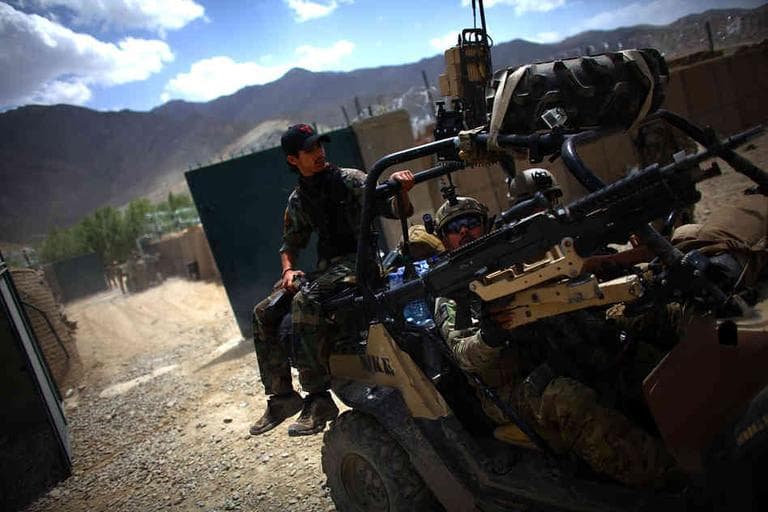Advertisement
Will Afghan Forces Keep Up The Fight After 2014?
Resume
The U.S. combat mission in Afghanistan will be over by the end of 2014, but that doesn't mean the job will be finished.
As U.S. troops leave Afghanistan, Afghan forces must take the lead.
There are concerns the country might fall into ethic violence when NATO forces are gone. There is also the worry that the Afghan army won't be able to secure the country going forward.
NPR's Pentagon correspondent Tom Bowman is in Afghanistan on one of his many reporting trips to that country in recent years.
He's just returned to Kandahar after embedding with a U.S. Army Stryker unit in Panjwai District. He’s been gauging the Afghan Army’s readiness to take control of the war.
“The Afghan forces have to want to protect their country. They have to want it, as the Americans say, more than they do. And that’s really the unanswered question at this point. When the U.S. pulls out, will they continue to fight and hold their positions?”
Recent stories by Tom Bowman:
Guest:
- Tom Bowman, reporter for NPR, who has been spending time with U.S. and Afghan troops in Afghanistan.
This segment aired on June 7, 2013.